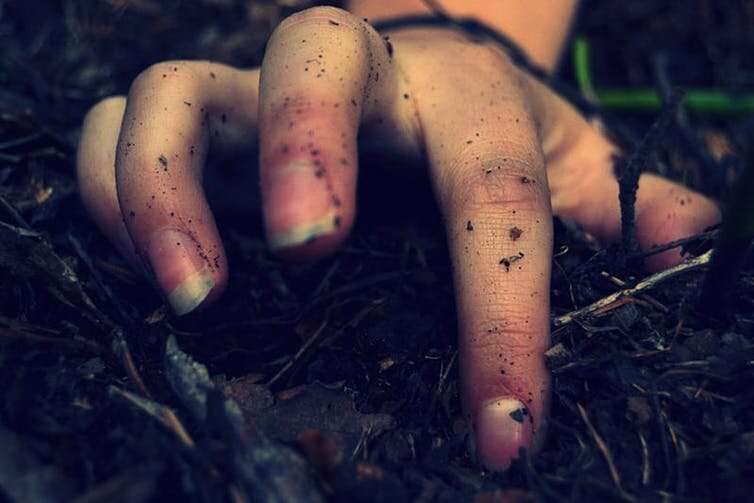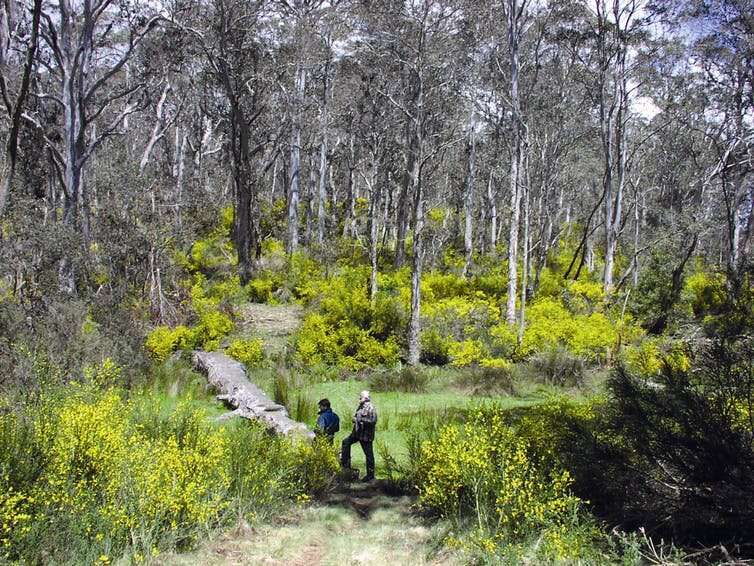Pulling out weeds is the best thing you can do to help nature recover from fire

Many Australians feel compelled to help our damaged wildlife after this season's terrible bushfires. Suggested actions have included , leaving water out for thirsty animals, and learning how to . But there is an equally, if not more, important way to assist: weeding.
An army of volunteers is needed to help land owners with judicious weed removal. This will help burnt habitats recover more quickly, providing expanded, healthy habitat for native fauna.
Other emergency responses, such as culling feral animals and , are obviously jobs for specialists. But volunteer weeding does not require any prior expertise—just a willingness to get your hands dirty and take your lead from those in the know.
Why is weeding so critical?
The recent bushfires burned many areas in national parks and reserves which were infested with weeds. Some weeds are killed in a blaze, but fire also stimulates their seed banks to germinate.
Weed seedlings will spring up en masse and establish dense stands that out-compete native plants by blocking access to sunlight. Native seedlings will die without setting seed, wasting this chance for them to recover and to provide habitat for a diverse range of native species.
This mass weed germination is also an opportunity to improve the outlook for biodiversity. With a coordinated volunteer effort, these weeds can be taken out before they seed—leaving only a residual seed bank with no adult weeds to create more seed and creating space for native plants to flourish.
With follow-up weeding, we can leave our national parks and reserves—and even bushland on farms—in a better state than they were before the fires.
Weeding works
In January 1994, fire burned most of Lane Cove National Park in Sydney. Within a few months of the fire, .
Their efforts eradicated weeds from areas where the problem previously seemed intractable and prevented further weed expansion. Key to success in this case was the provision of funding for coordination, an engaged community which produced passionate volunteers and enough resources to train them.
Following recent fires in the Victorian high country, volunteers will be critical to controlling weeds, .
Fire typically kills these woody shrubs but also stimulates seed germination. Without intervention, broom will form dense stands which .
However, swift action now can prevent this. Mass germination . Further, broom usually takes three years to flower and replenish its seedbank. So with no new seeds being produced and the seedbank low and shrinking, this three-year window offers an important opportunity to restore previously infested areas.
Parks Victoria took up this opportunity after the 2003 fires in the Alpine National Park. They rallied agencies, natural resource management groups and local landholders to . Herbicide trials at that time revealed that to get the best outcome for their money, it was critical to spray broom seedlings early, within the .
Broom management also needs to use a range of approaches, .
Plenty of work to do
Parks Victoria continue to and will coordinate fire response actions when parks are safe to enter. Similar programs can be found in , , , , , , and the .
A and warrant a rapid response. They include , , and .
Managing weeds after fire is currently a high priority at many sites. At the edges of the World Heritage Gondwana rainforests of southwest Queensland and northern and central NSW, there is a window to more effectively control . In many forested areas in NSW, Victoria and South Australia, fire has created an opportunity to address important weed problems.
State government agencies have the mapping capacity to locate these places. Hopefully they can make these resources easy for the public to access soon, so community groups can self-organize and connect with park managers.

All this needs money
Emergency funding is now essential to enable community-based weed control programs at the scale needed to have a substantial impact. Specifically, funding is needed for group coordinators, trainers and equipment.
While emergency work is needed to control regenerating weeds in the next 6-18 months, to consolidate success and prevent reinfestations from the small, but still present, seed bank.
to enable this work, and prepare for a similar response to the next mega-fires.
Want to act immediately?
You can volunteer to do your bit for fire recovery right now. In addition to state-agency volunteer websites, there are many existing park care, bush care and "friends of" groups coordinated by local governments. They're waiting for you to join so they can start planning the restoration task in fire-affected areas.
Contact them directly or who can link you with the appropriate organizations.
If we do nothing now, the quality of our national parks will decline as weeds take over and native species are lost. But if you channel your fire-response energy and commitment to help manage weeds, our national parks could come out in front from this climate-change induced calamity.
By all means, rescue an injured koala. But by pulling out weeds, you could also help rescue a whole ecosystem.
Provided by The Conversation
This article is republished from under a Creative Commons license. Read the .![]()


















